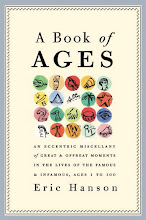It was on this day in 1973 that Richard Nixon qualified for Bartlett's Familiar Quotations. Just five words. Five words everybody knew were not true. "I am not a crook." It happened in Orlando, Florida in front of a few hundred AP editors, which made it hard to retract or clarify. By then he didn't have anybody skilled enough to clarify him out of his situation. He hung on for another ten months. He was 60 years-old.
It's hard to correct the habits of a lifetime. What I remember, watching as a kid from my Republican household, was a kindly, sincere, trustworthy man in a conservative banker's gray or blue suit. His eyes twinkled. He smiled at you right through the television. Behind the facade there was a lot of animal cunning. He was especially good at seeing and exploiting weaknesses in other people. He beat Helen Gahagan Douglas for his Senate seat by suggesting she wore pink underwear. Everybody knew that closet Communists wore pink underwear, but he never offered any eyewitness testimony. He was 37 when he got into the Senate. When he was 30 (the age Hitler was when he grew his famous moustache) Nixon won more than $10,000 off fellow servicemen in the South Pacific. I wonder what that did for morale.
I can still see Nixon's face and hear his voice, coming out of the old Zenith. He seemed so believable, but maybe it was the medium. We believed people we saw on TV. In 1977 the deposed Nixon appeared on TV with David Frost and explained that when a president does something it's not illegal. Nixon appears a dozen times in A Book of Ages. This isn't counting all the times he shows up in other people's stories. Like Kissinger's and Rose Mary Woods', Nixon's loyal, and remarkably elastic, secretary. Nixon's name comes up when Paul Newman finds he's on the president's enemies list, and he comes to mind when William Safire wins a Pulitzer Prize (Safire was a Nixon speechwriter before he became a trusted columnist.)
I'm not changing the subject too much when I mention this. It was on this day in 1970 that Lieutenant William Calley went on trial for his part in the My Lai Massacre. Calley appears twice in A Book of Ages. 102 villagers died in the hamlet of My Lai on March 16, 1968. More than 500 Vietnamese civilians had been killed in similar incidents in that same period. The Courts Martial eventually found Calley guilty of murdering 22 Vietnamese civilians and sentenced him to life imprisonment.
The public reaction was mixed. The day after Calley was sentenced President Nixon ordered him transferred from Leavenworth Prison to house arrest at Fort Benning, Georgia. In the end he only served 3 1/2 years of his sentence. After his release Calley managed to lead a fairly normal life. He worked in a jewelry store. He got a divorce. In August of this year, he apologized for what he had been a part of. He'd gotten on with his life. What a burden to carry, though. But people didn't stop him on the street. They didn't associate the guy passing them on the sidewalk with something that had happened long ago in a war zone. I suppose the name rang a bell when he wrote a check; maybe he paid cash. The thing is he looked just like everybody else. So did Richard Nixon.
Tuesday, November 17, 2009
"I am not a crook"
Labels:
David Frost,
Henry Kissinger,
Nixon,
Paul Newman,
Rose Mary Woods,
TV,
Vietnam,
William Calley,
William Safire
Subscribe to:
Post Comments (Atom)





No comments:
Post a Comment